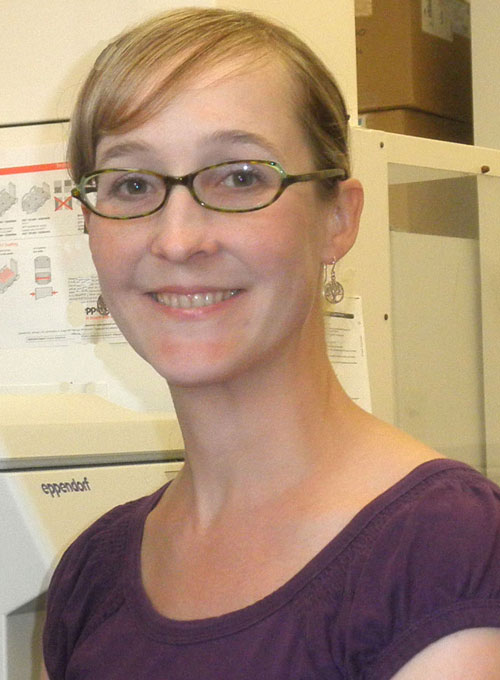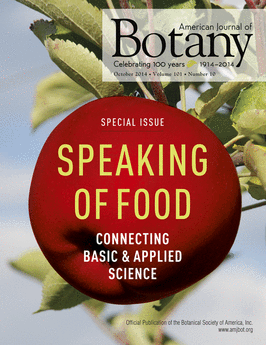
Brianna Gross

Cover of October issue of American Journal of Botany
Duluth, MN — Briana Gross, assistant professor of biology at the University of Minnesota Duluth (UMD), served as co-editor of a recently published special issue of “American Journal of Botany.” The “Speaking of Food” special issue showcases basic plant research that provides building blocks for one of today's biggest challenges: Feeding the world in a changing climate.The issue builds a bridge from basic botany to applied agriculture. It emphasizes how a broad range of basic plant science is relevant to global food demands. Gross' co-editors include Allison Miller, associate professor of biology at Saint Louis University and Elizabeth Kellogg, member and principal investigator at the Danforth Plant Science Center.
One of the planet's leading questions is how to produce enough food to feed the world in an increasingly variable climate. The Food and Agriculture Organization of the United Nations predicts that food production must rise 70% over the next 40 years to feed a growing global population, and plants are one major component of the necessary rise in food production. Plants—grains, cereals, fruits, vegetables, and more—feed humans directly and indirectly by supporting livestock. Current research must tap into our knowledge of how plants work to develop more efficient and higher yielding agricultural systems that produce more food using fewer resources and with reduced environmental impacts.
The solutions to feeding the world are multi-faceted, requiring knowledge from a diversity of fields and practices to successfully raise food production and maintain ecosystem security. Thus, three prominent scientists, Gross, Miller and Kellogg, are highlighting the importance of basic plant science and its relevance for pressing global issues like applied agriculture.
Traditionally, basic plant research is motivated by curiosity to understand fundamental biological phenomena, while applied research is mainly motivated by practical applications. However, basic research conducted with a consideration of ultimate use represent a productive and growing area of plant biology.
Research fields in the issue include plant ecology, evolution, phylogenetics, quantitative genetics, and economic botany. Conserving crop germplasm is addressed in articles that tackle the geographical and evolutionary origins of crop plants. The expansion of agricultural weeds in recent history is addressed in articles on plant population genetics. Crop fertility and genetic diversity is addressed through studies ranging from basic pollination biology to cultivar use through time.
(More information about the special issue articles can be found at http://www.amjbot.org/content/early/2014/10/14/ajb.1400409.full.pdf+html).
Choose appearance:
[ Desktop
| Mobile friendly ]